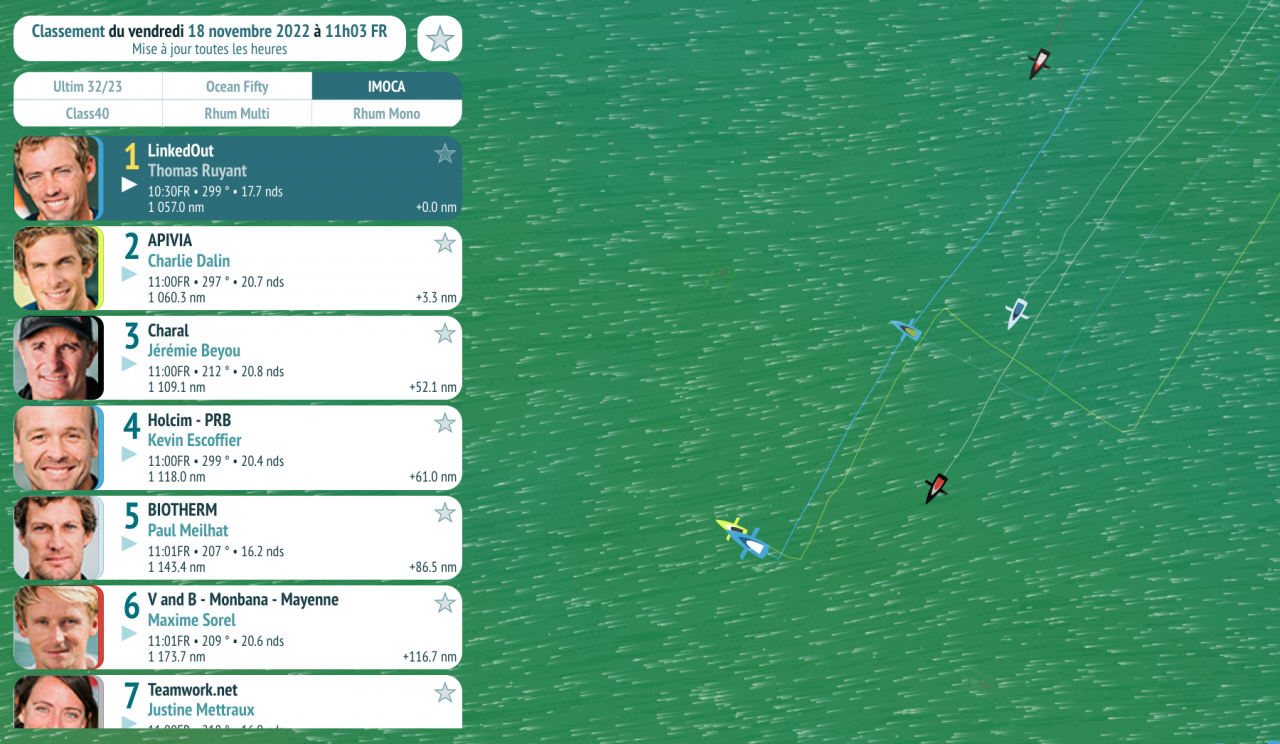Grégoire: The Route du Rhum or the Figaro in an IMOCA?
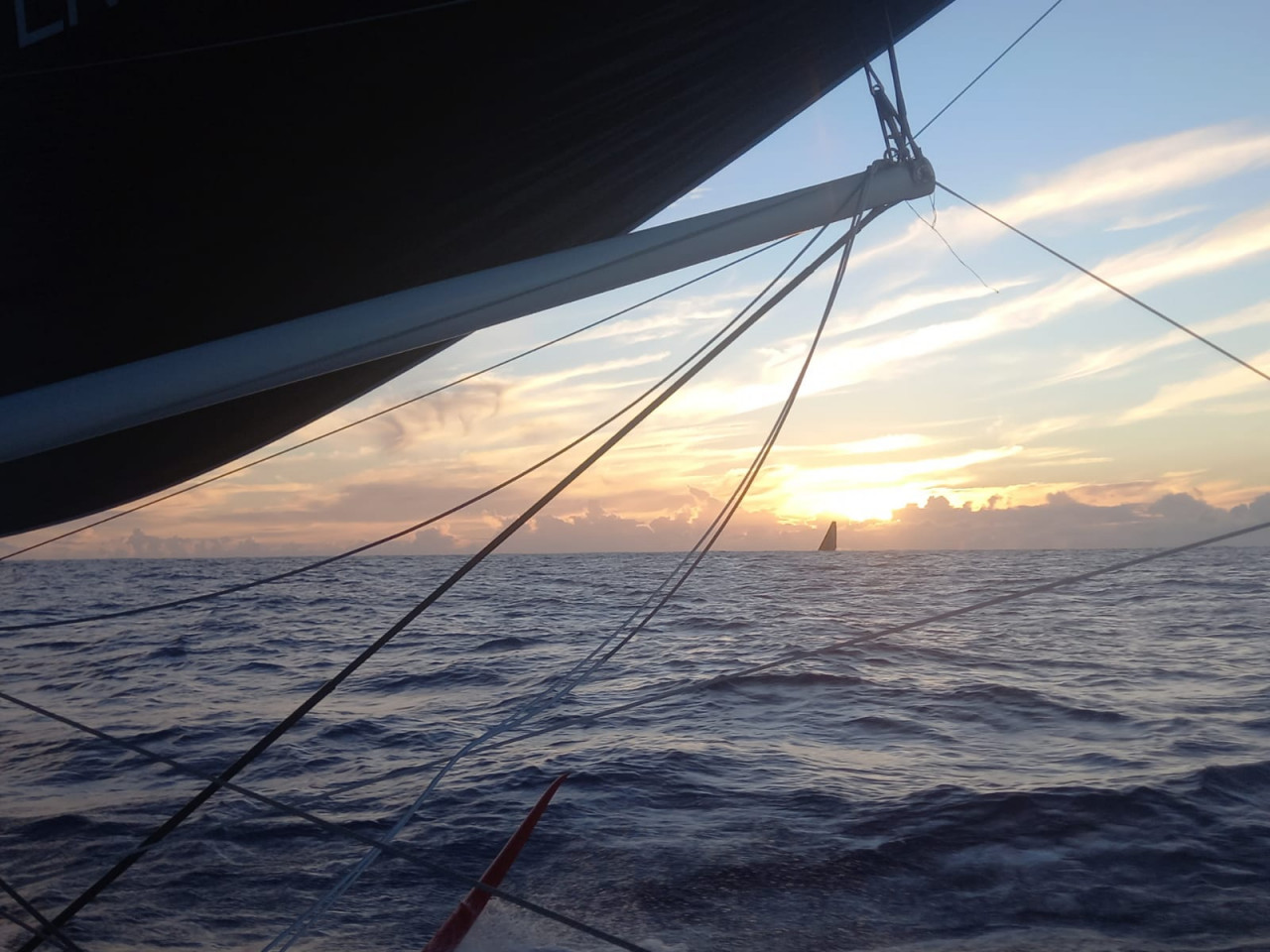
As director of the famous race training centre at Port-la-Forêt – the Pôle Finistère Course au Large – where 12 IMOCAs are based, among them many of the top boats, Jeanne Grégoire knows the Class as well as anyone.
In between her many responsibilities she has been keeping an eye on the Route du Rhum-Destination Guadeloupe which today – the end of the ninth day at sea – has seen its first change of lead since day two.
As the front-runners gybe westwards in the trade winds, with just over 1,000 miles to go to the finish, Thomas Ruyant on LinkedOut, has edged ahead by just a few miles from longtime leader Charlie Dalin on APIVIA 1.
The two skippers are fighting for every boatlength at the sharp end of a contest that Grégoire says has been reminiscent of another legendary French sailing championship. “Yes,”she said, “it is just like the Solitaire du Figaro – the Figaro in an IMOCA and we really like this!”
For her, this has been a compelling race because it has not been just about boat speed. “It has been a great race from the beginning because it has been very tactical all the way through and not just a speed race, so it has been interesting to see how the skippers have managed this,” she said of a Rhum which has seen the fleet cross three active weather fronts plus areas of light winds in between.
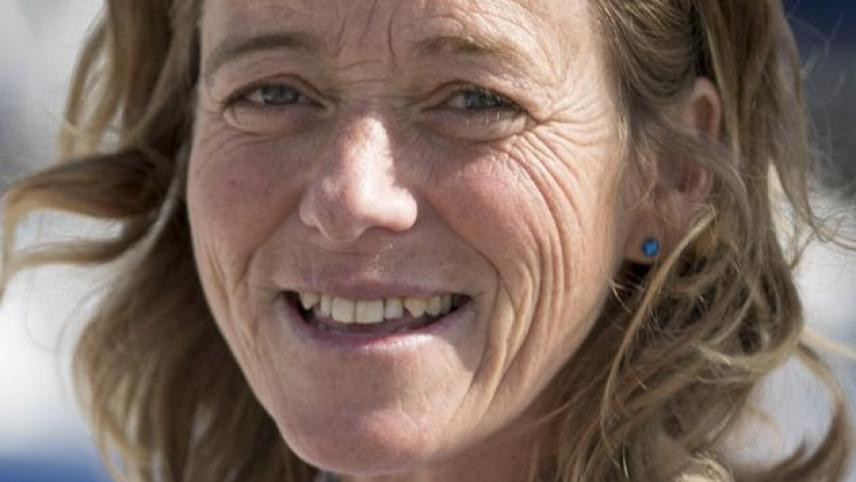
“This is especially good because since the beginning of the year in the IMOCA fleet we have seen lots of speed tests more than strategy races. I think even if Charlie has a big advantage over the others in speed upwind, you see his rivals – like Thomas, Jérémie (Beyou), Paul (Meilhat)and Kevin (Escoffier) – sailing big tactical races and it’s been great to see that,” added Grégoire.
She says the race was always going to be slightly one-sided because the weather picture from the start made any sort of northerly option more or less unusable, and the southerly route would always involve tackling some patchy and light conditions. “We knew from the beginning it was going to be a tricky race because nobody wanted to look for strong wind conditions on the northern side of the course, so everybody was expecting it would be hard to cross the ridge to catch the trade winds – and that’s what it is and it has been interesting to watch how they are managing that,” she said.
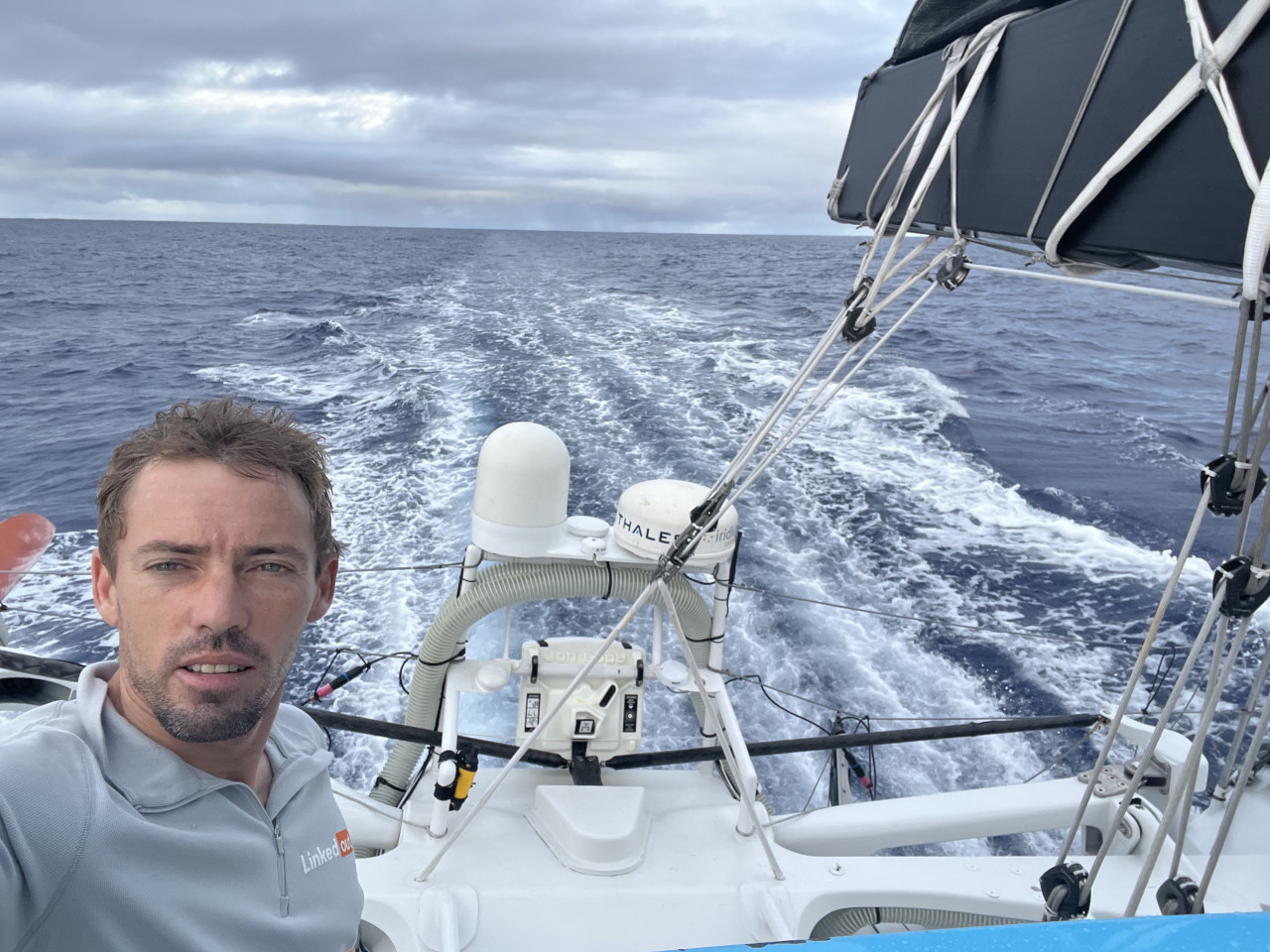
While many observers focus on the generational differences between IMOCAs – those designed for the 2020 Vendée Globe as compared to the 2024 generation for example – Grégoire reminds us that strategy choices by skippers are just as important in determining how the race has panned out.
“We can see the various levels in the fleet between the first boats – the top-seven – and the others. We can see that there is a real difference. It is a big gap and that is not just because of the boats – you can see the impact of the routes that skippers are choosing and getting those choices right requires a lot of experience and expertise,”she said.
In recent training sessions at Port-la-Forêt Grégoire says the emphasis has been on choosing the right trim settings on the IMOCAs and settling the boats down quickly as conditions change – exactly the sort of skills that are now required in trade winds that look steady across a large area but are streaky and variable in strength and direction.
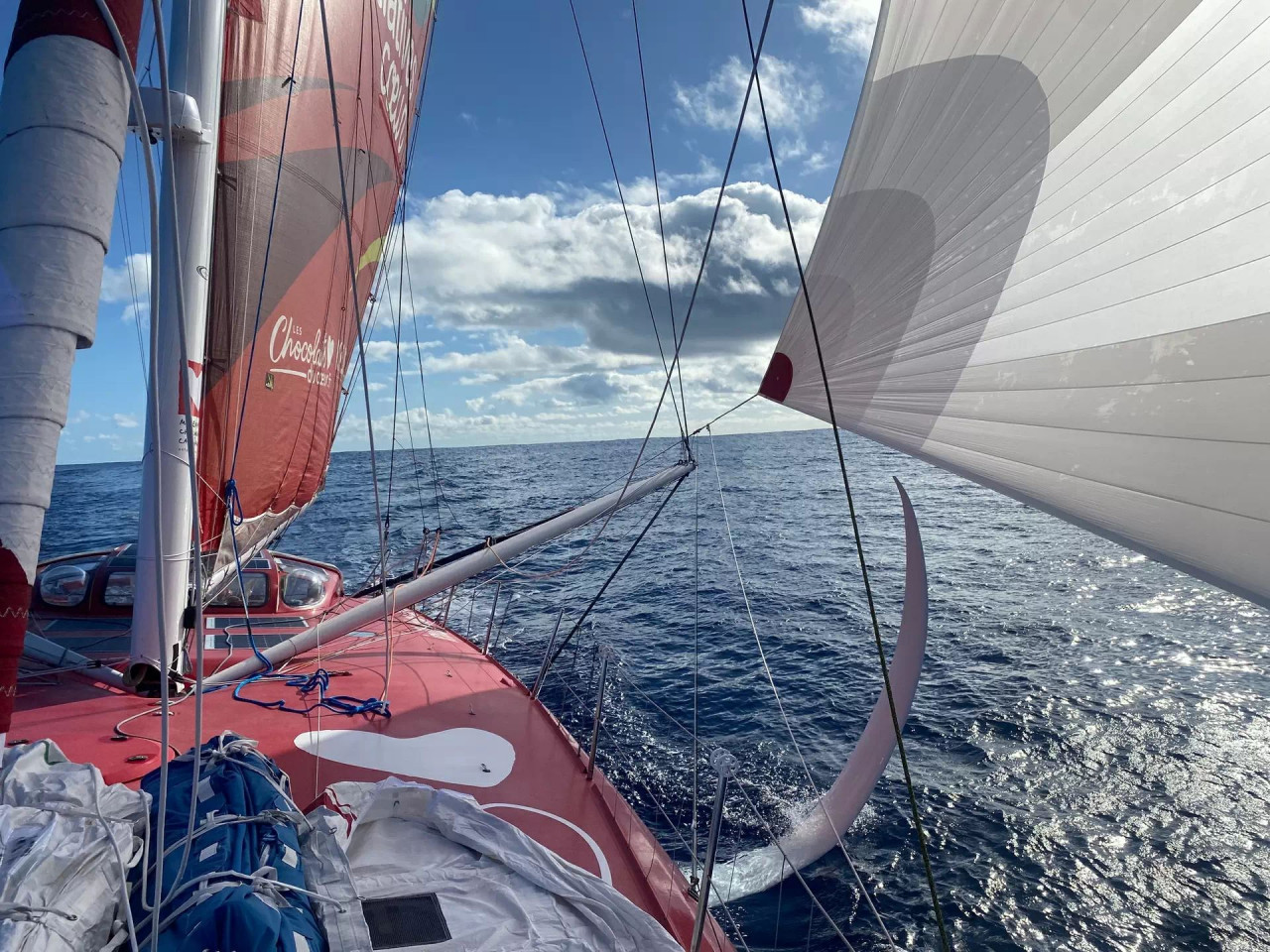
Talking to her you are reminded too that this is a multi-disciplinary challenge – she mentions the importance of “managing the boat” at all times, choosing the right angle to sail, and the right sail to use, getting keel and foil trim right, plus making sure the boat is properly balanced with the stack of unused sails and stores always in the right place. She says sail choices made before the start could play a decisive role in the outcome as the boats head downwind towards Guadeloupe. “Since the beginning of this year, the question between the skippers has been about whether or not to carry a spinnaker – so we will see who has one over the next few days,” she said.
Grégoire also believes that sleep will be a commodity sampled in very small helpings over the final few days to the finish. “I don’t think they sleep a lot,”she said. “I am sure they are not sleeping a lot. I’m not worried about it. Of course you can lose your mind and make a gybe at the wrong moment, or have the stack in the wrong place for a long time, but the top skippers have enough experience not fall asleep at the wrong moment.”
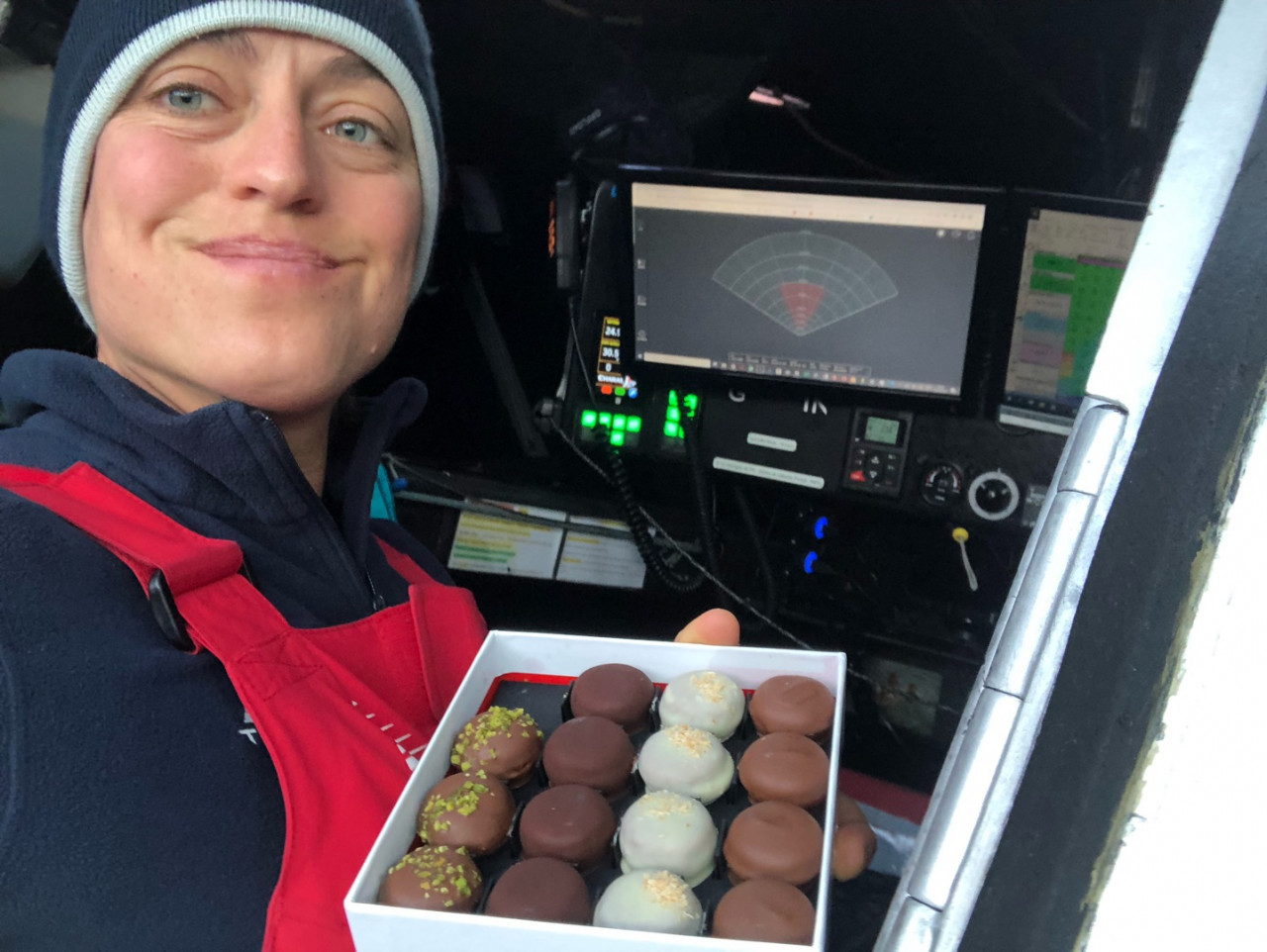
Grégoire picked out a few performances of note. She has been impressed by Justine Mettraux’s race in her first big solo effort on board Teamwork, which has seen the Swiss skipper racing with the top echelon and currently holding seventh place. Mettraux chose her own northerly route through the Azores that paid off handsomely. “I didn’t think that was going to work out, but I am really happy she succeeded with it,” summarised Grégoire.
Like many others she has also been impressed with the performance of Paul Meilhat on Biotherm who has managed top stay with the leading group in a boat that had precious few miles under its keel at the start. “I am really impressed by Paul because when he set sail he was talking about just getting to Guadeloupe – I think he was thinking his boat would not be able to race.”
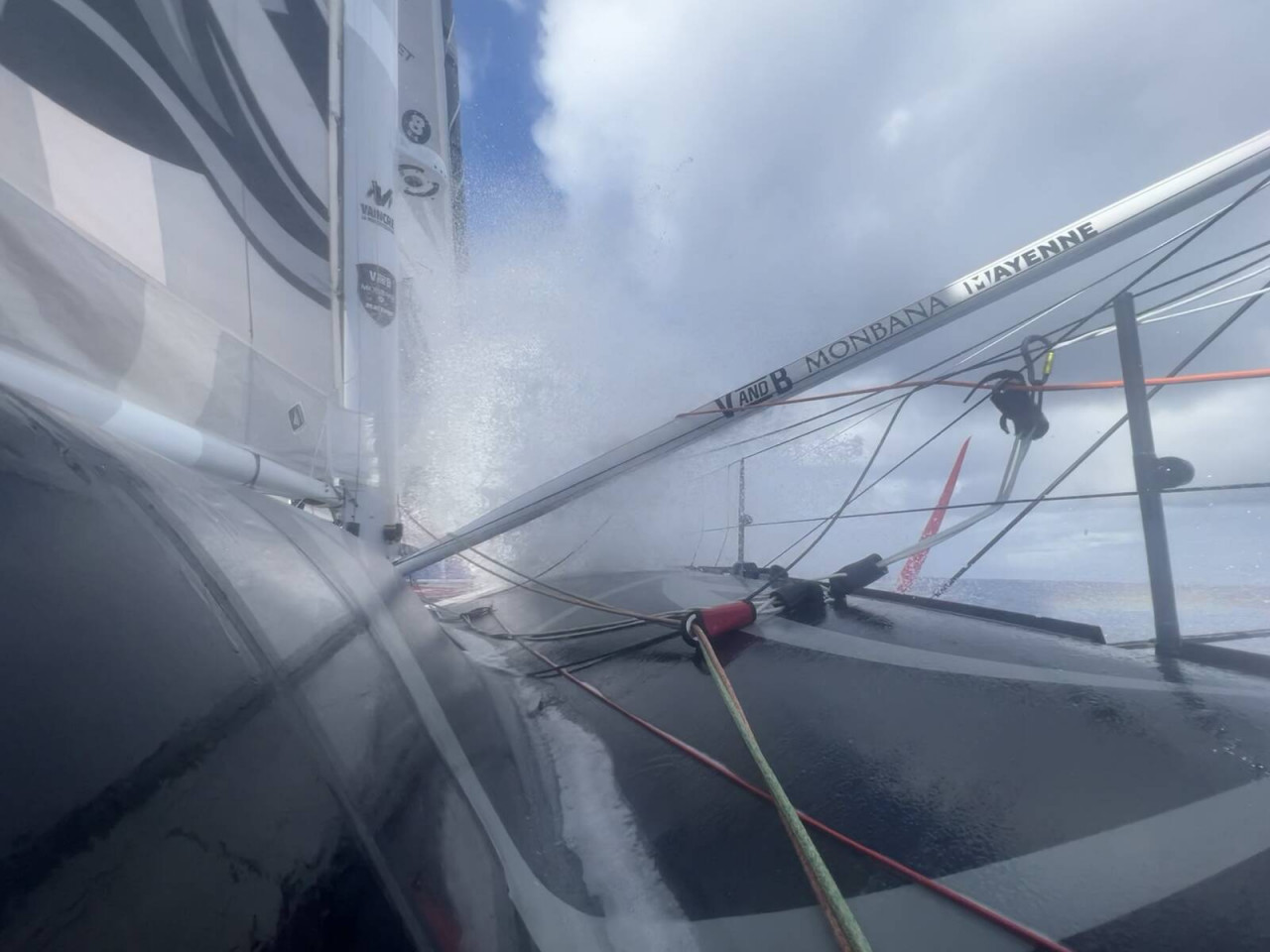
On Maxime Sorel on V & B-Monbana-Mayenne in sixth place: “We can see that he has been managing his boat very well.” On Boris Herrmann – Malizia SeaExplorer (23rd): “I think the boat is not really ready – he didn’t have the time to find the right settings.”On Sam Davies – Initiatives-Coeur (28th): “I think the boat was not ready to race. I think she did not want to take any risks and did not want to sail in really hard wind conditions. I think she is quite happy with where she is.”
Grégoire also picked out a typically tenacious performance by Benjamin Dutreux, currently in eighth place on Guyot Environnement-Water Family, who has been fighting to stay ahead of Yannick Bestaven on Maître-CoQ V, Romain Attanasio on Fortinet-Best Western and Nicolas Troussel on CORUM L’Épargne on the southern flank of the course.
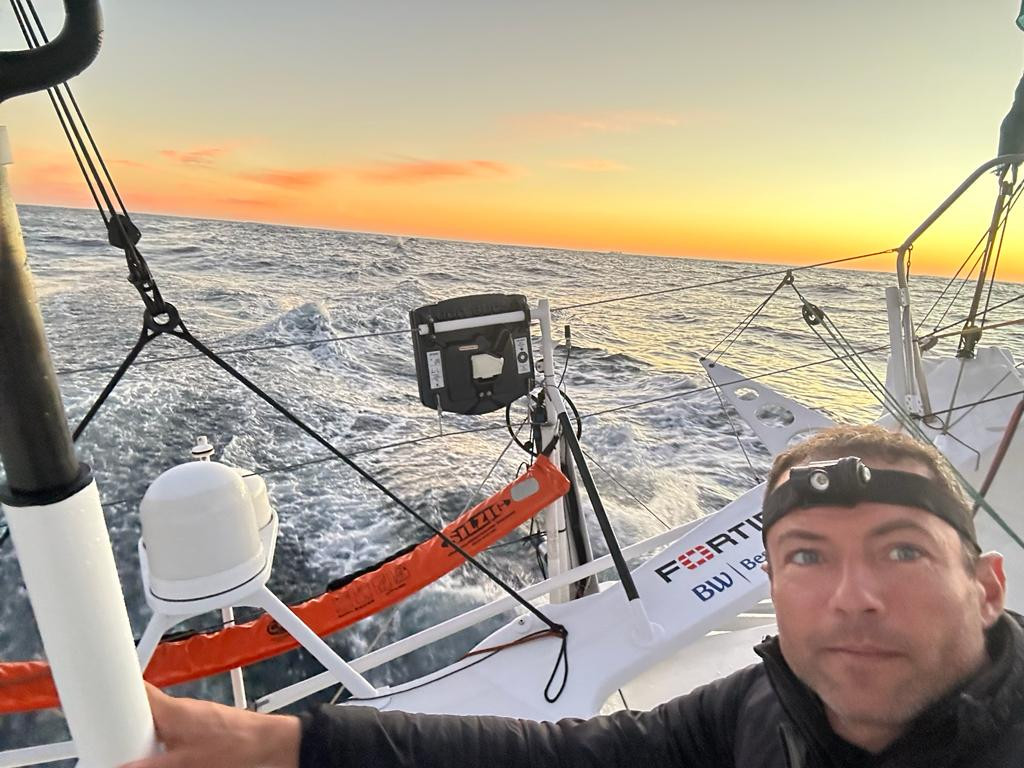
Of the leading pair, Grégoire is happy to admit that she is hoping Dalin can pull off a big win in his final race on Apivia 1. “I hope for Charlie he will win because I think it will be a really good thing for him to finish this story with this boat with a nice victory, especially because he took line honours in the Vendée Globe but he didn’t win it,” she said.
But she cautions that there is still a long way to go in a race that always gives skippers a chance right up to the final miles. “The race is not over,” Grégoire said. “For sure there is still a long way to go. The trade winds could still be really tricky – you can sail under clouds that can stop you and then you have to go around the island of Guadeloupe, so for sure this race is not over.”
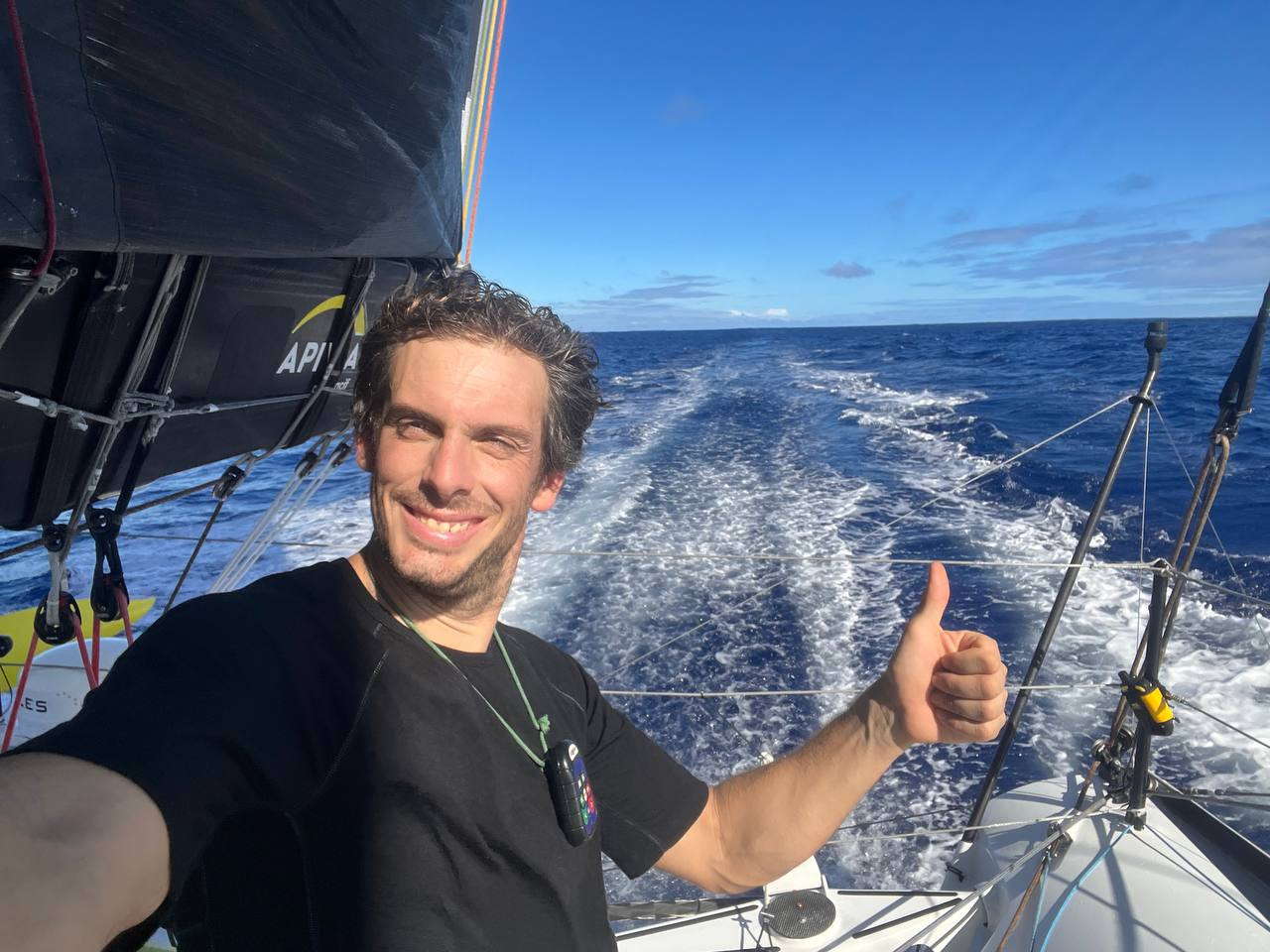
The first IMOCAs are due at the finish line off Pointe-à-Pitre some time on Sunday night or early Monday morning. Of course everyone in the Class has been deeply shocked and saddened by the tragedy that occurred as the first Ultime was crossing the finish line early on Wednesday morning. All the IMOCA skippers in this race are aware of what has happened and all of them are thinking of the families of those who have lost loved ones. Grégoire said that while the race is still going on and a winner will be declared, this will not be a normal finish.“We cannot forget that the atmosphere in Guadeloupe is really difficult because of the recent events,” she said.
Ed Gorman
Teams info
The Transat CIC: a spectacular start!
Brittany turned on its best Spring sailing weather – sunshine, puffy cumulus clouds and a decent 10-15kts of Westerly wind – to send the 48 strong Transat CIC fleet on its way from Lorient towards New York for the start …
•••Charlie Dalin: Raring to go on his first solo The Transat CIC
It’s good to see Charlie Dalin back where he belongs, at the helm of his almost brand new Guillaume Verdier IMOCA, Macif Santé Prévoyance, ready to take on the north Atlantic in The Transat CIC.
•••
